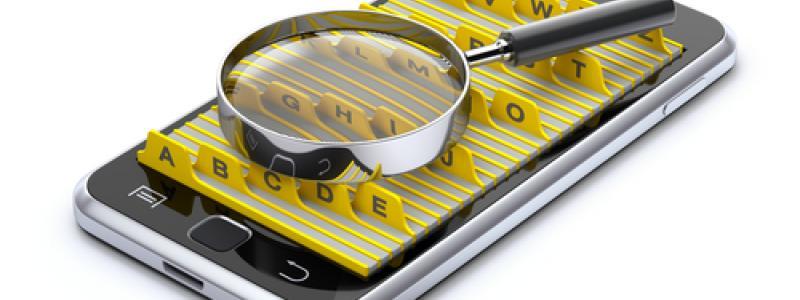Border Patrol Agents Searched Over 30,000 Phones and Computers Last Year

The United States Customs and Border Patrol (CBP) has recently released its report regarding electronic device searches at the border for the entire year of 2017, and the numbers are particularly telling -- the agency has conducted border searches on a total of 30,200 phones and laptop devices in the last twelve months. The CBP also took the opportunity to update its guidelines on how these searches are supposed to be carried out.
Under the administration of President Donald Trump (who took to office about one year ago), the subject of electronic device searches at the border has increasingly become a hotly debated one. The arguments all revolve around trying to guarantee security and protection against terrorists (who often use smartphones, tablets, laptops, and computers to potentially harm civilians) versus defending the rights to privacy of each person who owns the device being subjected to the border search.
In a lawsuit it has filed back in September of last year, the American Civil Liberties Union (ACLU) of Massachusetts and the Electronic Frontier Foundation (EFF) has claimed that the border searches are in violation of privacy. The government, however, is arguing that these border searches are exempted because they are done for national security purposes.
It must be mentioned that any traveler can be made to undergo these border searches, regardless of whether he or she is a citizen of the United States. And while border searches have been conducted by Border Patrol agents before Trump became President of the US, it can not be denied that the frequency of such searches has increased by close to 60 percent since he took office.
Nowadays, electronic devices can carry so much potentially sensitive or private content like health information, business documents, or even personal data. Interestingly, the United States Department of Homeland Security (DHS) did state last July that it is not authorized to search the data stored or saved in the cloud that phones and laptops might have access to.
Last April, Senator Ron Wyden, a Democrat from Oregon, along with Senator Rand Paul of Kentucky, had introduced bills in the House and Senate that would require Border Patrol agents to show a warrant based on probable cause before they can conduct a border search on an electronic device. According to Wyden, the overall purpose of the bill was to have CBP officials focus on catching terrorists and criminals, not on doing what appears to be just random searches on gadgets owned by US citizens.
Related Blog Articles
- A Quick Round-Up of CES 2018 (with a Focus on Mobile)
- Report: Time Spent on Mobile Apps Increased Only 6 Percent in 2017
- Google: Page Loading Speeds to Become Factor in Mobile Search Rankings
- App Downloads Worldwide Hit 175 Billion Last Year
- Survey: Interest in New iPhone Models Approaching Lowest Levels Ever
- Postpaid Customers Who Are Getting Unlimited Data Increases To 53.4 Percent
- Montana Becomes First State to Enforce Net Neutrality
- Introducing the AT&T Smart Wi-Fi Extender
- New York Becomes Second State to Implement Net Neutrality
- Google Play Downloads Reached More Than 19 Billion During Fourth Quarter of 2017
Related Blog Posts
- Report: Drug users are using wearable devices during binges
- Spotify allows Android users to reorder playlists; Pandora lets users share tunes to Snapchat Stories
- WhatsApp combats fake news with a new forwarded label
- FCC: Today’s improving mobile networks can impact healthcare costs
- Did Apple Music already overtake Spotify in America?


 Menu
Menu